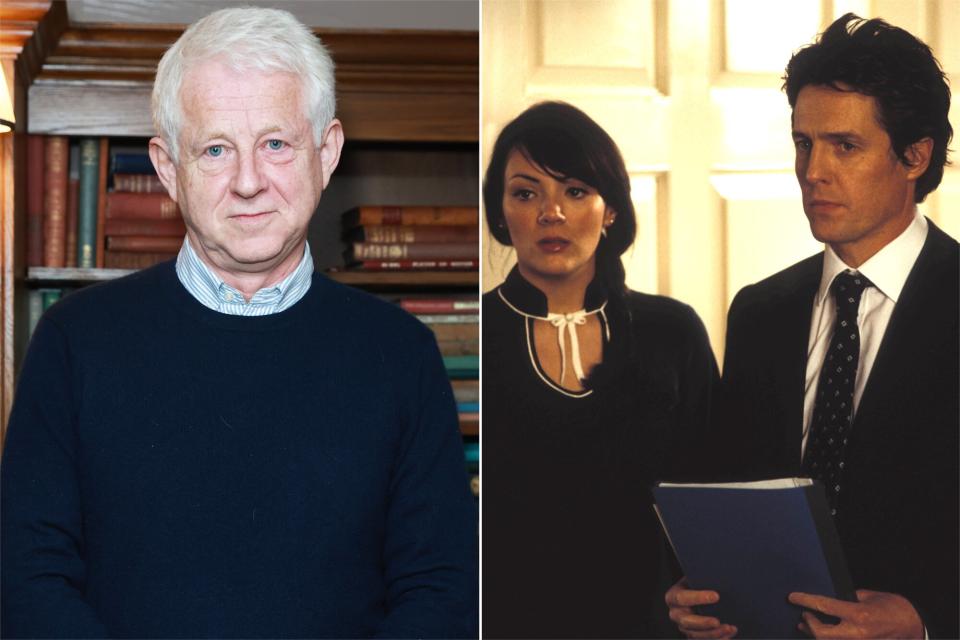Richard Curtis regrets fat-shaming, lack of diversity in “Love Actually”, “Notting Hill”

Richard Curtis' daughter Scarlett is just a girl, standing in front of her dad, asking him why his movies are insensitive.
The elder Curtis — the screenwriter and sometimes-director behind rom-coms like Love Actually, Notting Hill, Bridget Jones's Diary, and Four Weddings and Funeral — expressed regret over elements of his films during an interview with his daughter at The Times and Sunday Times Cheltenham Literature Festival.
Scarlett Curtis confronted her father over the portrayal of women and lack of diversity in his movies, saying, "In the last few years, there has been a growing criticism around the ways your films treated women and people of color."
She provided specific examples, explaining that there are "multiple accounts of inappropriate boss behavior in Love Actually, including the prime minister, how in general the women are visions of unattainable loveliness, and a noticeable lack of people of color in a film called Notting Hill — one of the birthplaces of the British black civil rights movement." She also noted the absurdity of Renée Zellweger's character Bridget Jones being described as having "tree-trunk thighs" in spite of the actress' typical physique.

David M. Benett/Dave Benett/Getty Images; Everett Collection Richard Curtis; 'Love Actually'
The filmmaker didn't resist most of the criticism. "I remember how shocked I was five years ago when Scarlett said to me, 'You can never use the word "fat" again,'" he said. "Wow, you were right. In my generation calling someone chubby [was funny] — in Love Actually there were jokes about that. Those jokes aren't any longer funny."
Curtis was referring to a subplot in the holiday rom-com in which Natalie (Martine McCutcheon), a staffer for the prime minister (Hugh Grant) is repeatedly ridiculed for her weight.
"I wish I'd been ahead of the curve," he said on the question of diversity, though he did defend himself by observing that Four Weddings and a Funeral included a gay romance, and that Simon Callow, who played the primary gay character in the film, said that it was the first gay character he'd been offered who didn't die of AIDS. His daughter rebutted by noting that the character is still a tragic one. (Spoiler alert: he does not live to see the end of the movie.)
To this, the screenwriter replied, "I think because I came from a very undiverse school and bunch of university friends, I think that I hung on to the feeling that I wouldn't know how to write those parts. I think I was just stupid and wrong about that. I felt as though me, my casting director, my producers just didn't look outwards."
Last year, Curtis stated that he regretted the lack of diversity in Love Actually, saying that it "makes me feel uncomfortable and a bit stupid" in an interview with Diane Sawyer. "There are things you'd change but, thank God, society is changing, so my film is bound, in some moments, to feel out of date."
Curtis' next project is That Christmas, an animated project for which he wrote the screenplay. The script is based on Curtis' series of children's books, and is scheduled to hit Netflix next year, presumably around the holiday season.
Want more movie news? Sign up for Entertainment Weekly's free newsletter to get the latest trailers, celebrity interviews, film reviews, and more.
Related content:


